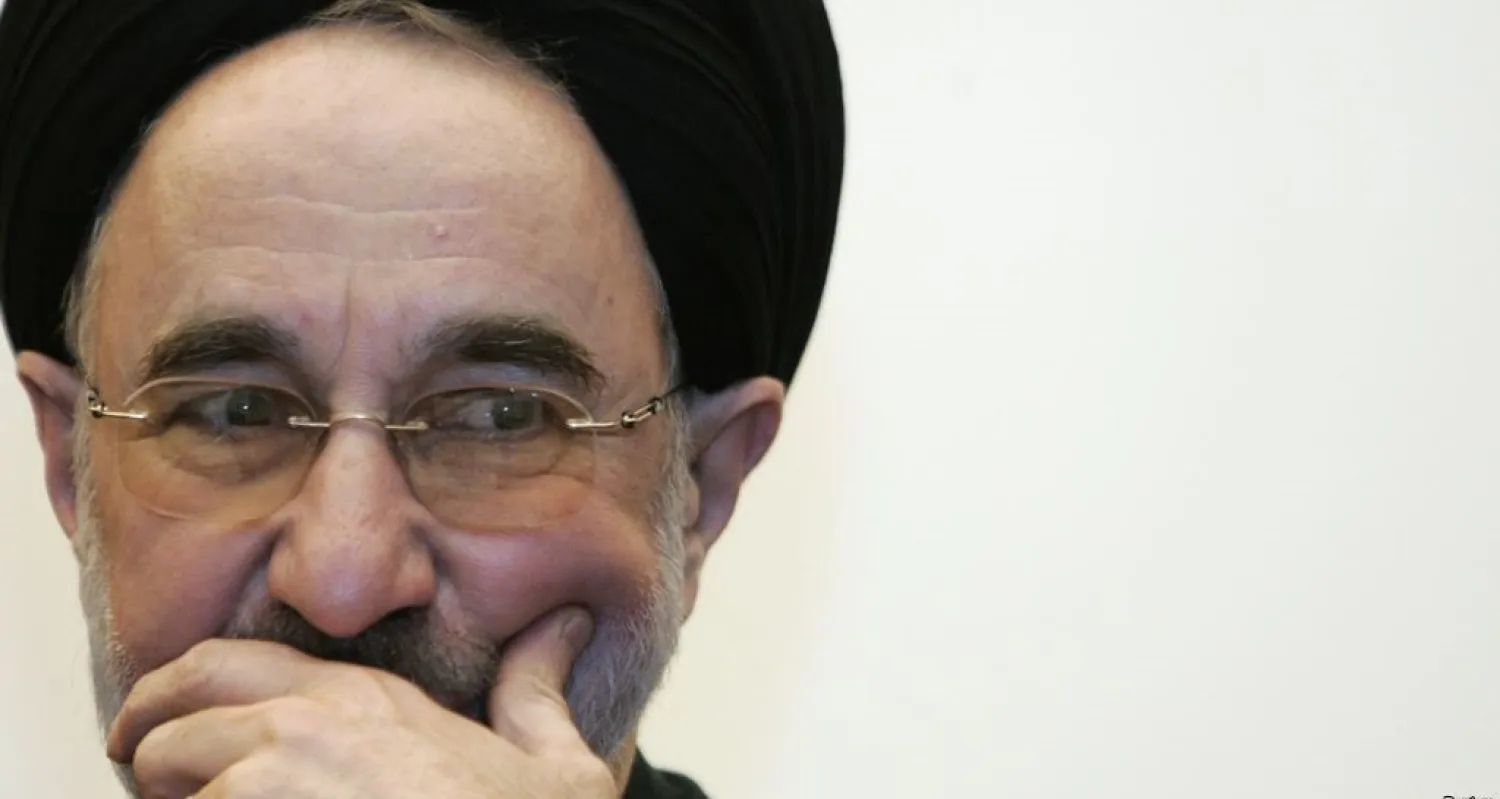Iran's opposition said Friday that restrictions have been tightened on reformist former president Mohammad Khatami, barring him from all public meetings for three months.
Khatami has been banned from appearing in the media since mass protests against the government in 2009-2010, but continues to wield considerable power behind the scenes.
Agence France Presse quoted the opposition Kalemeh website as saying the Special Clerical Court had sent Khatami a letter asking him "not to take part in any political ceremonies and publicity for three months".
This was said to include any meetings, theater performances and concerts, and barred individuals, government and seminary officials and student union members from meeting with him.
The new restrictions were first revealed by Khatami's nephew Mohammad Reza Tabesh, a member of parliament, earlier this week.
The letter was said to have been signed by the head of the Special Clerical Court, Ebrahim Raisi, the hardline runner-up in this May's presidential election.
Fars and Mehr news agencies said on Thursday that unnamed officials had denied the existence of the letter or the new restrictions.
Member of parliament Ali Motahari -- considered a political moderate -- criticized the new measures, saying they were illegal without proper consultation with Khatami or his lawyers.
"We have a good constitution and the parliament has also devised good laws but some councils and institutions such as the Special Clerical Court bypass the constitution and the parliament and drag the country towards autocracy," he said.
Two other opposition leaders, Mir Hossein Mousavi and Mehdi Karroubi, have been under house arrest since 2011 for their role in the anti-government protests.
Also Friday, Iranian Vice President Eshagh Jahangiri said that his brother, who heads several major tourism projects, had been arrested.
Mehdi Jahangiri has interests in large-scale developments, including a new tourism park outside Tehran, as well as a branding deal with France's Novotel and Ibis hotel chains signed in 2015.
"I do not have precise information on the reason and manner of the arrest," Eshagh Jahangiri said on his Instagram account.
"I hope my brother's arrest is not a political abuse and that justice, the fight against corruption, and the rule of law apply the same to everyone," he added.
Eshagh Jahangiri has served as a deputy to President Hassan Rouhani since 2013, and ran as a candidate in May's presidential election only to stand down in his favor.









